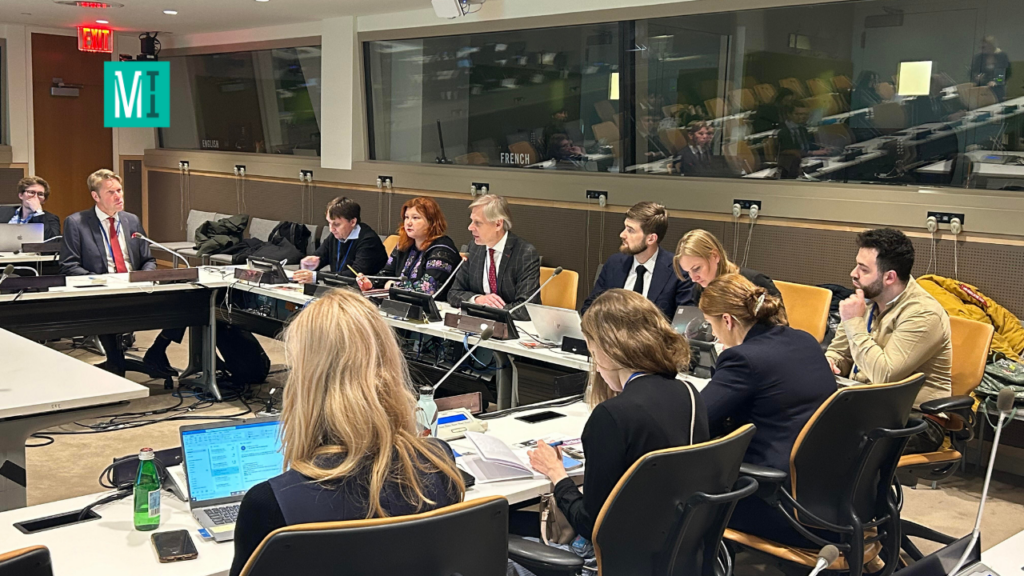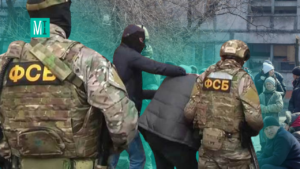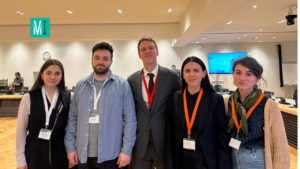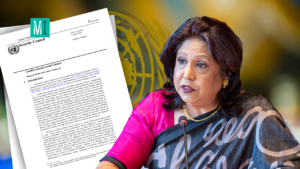“The persecution of civilians in the occupied territories is a systematic practice of the Russian Federation, as well as a tool for establishing occupation power,” — Olha Reshetylova

“No one has access to the places of detention of civilian hostages seized by Russia in the temporarily occupied territories — no one, including the International Committee of the Red Cross. Therefore, we aim to engage the international community and introduce a mechanism for releasing Ukrainian citizens. This will help to gain access to the places of detention and understand their condition and the conditions in which they are held. At the same time, the illegal detention of Ukrainian citizens after Russia’s full-scale invasion should be qualified as a crime against humanity.” This was stated by Olha Reshetylova, Head of the Media Initiative for Human Rights, during her speech at the event within the framework of the 22nd Assembly of States Parties to the Rome Statute in New York.
She also added that as of December 2023, the MIHR has identified and confirmed 1,355 civilian hostages held throughout the Russian Federation and the occupied territories. This figure is not final and could be 5-6 times higher. The MIHR has also identified at least two places of detention in Belarus, where civilian detainees were held in transit, and more than 100 places of detention in the occupied territories of Ukraine and in the Russian Federation, where Ukrainian citizens are held.

The event was held at the UN Headquarters in New York with the support of the Permanent Missions of Sweden and Ukraine to the UN and the International Renaissance Foundation. In addition to the Media Initiative for Human Rights, the event was attended by the Human Rights Centre ZMINA, Truth Hounds, and the Ukrainian Legal Advisory Group, which are members of the Ukraine 5 AM Coalition and the Center for Civil Liberties.
These organizations jointly document war crimes. For this purpose, the MIHR and the coalition members use the I-DOC system. It allows the registration and documentation of the collected facts, testimonies, and other evidence to systematize them in accordance with the requirements and requests of the International Criminal Court, as well as to collect evidence and testimonies to prepare cases for future submission to the ICC.
“The I-DOC database system proved effective in documenting cases during the war in Chechnya, the Balkans, and Syria. For example, in the case of Syria, the system helped identify the pilots accused of bombing Aleppo. We see the same names in the crimes committed in Ukraine. That is, we have the same criminals in both conflicts. As for our work in Ukraine, the MIHR has begun to create a case study of the liberated territories of the northern regions of Ukraine: Chernihiv, Sumy and Kyiv regions. We have already entered into the system evidence of the capture of civilians in these regions. We are talking about the persecution of civilians who were taken to different regions of the Russian Federation through the territory of Belarus. They stayed in Belarus for about 2-3 days and then were transported to other camps in Russia,” — Reshetylova noted.

The head of the MIHR said that Ukraine had a dreadful experience when millions of Ukrainians were deported to Siberia during the Soviet Union: “Their families never found out what happened to these people. So it’s in our blood, let’s say, at the genetic level, the fear that we may never find these people.” According to her, the biggest problem is that there are currently no mechanisms for international identification of civilian hostages and their release. Moreover, the Russians continue to commit this crime by detaining Ukrainian civilians in the occupied territories. To stop this, the world must find a tool to prevent Russian atrocities. “This concerns thousands of Ukrainian citizens who have pro-Ukrainian views, Ukrainian citizenship, speak Ukrainian… What Russia is doing is a systematic, systematic, state policy aimed at breaking Ukrainians. However, we will resist and fight for our human rights, independence, and democracy,” — emphasized Olha Reshetylova.





